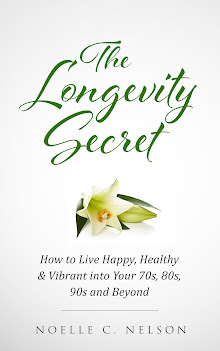One of the unexpected consequences of the pervasiveness of social media in our daily lives is the bleed-over into our real lives--the lives we experience in direct contact with other humans, instead of via any of the currently popular social media platforms. We have become, without necessarily realizing it, much more aware of how others see us and what they think of us. After all, we are easily subject to “likes,” “swipes,” “follows,” to name but a few, along with potentially damaging posts-gone-viral.
Whether these social media comments are harmful or beneficial isn’t the point. The point is that we are far more sensitized to others’ opinions of ourselves than we were a generation or so ago. It means that we tend to conform to how we think others want us to be or behave, and to not be who we truly are too much of the time. After all, we don’t want to be socially disapproved of. We don’t want to be swiped left.
Enough! Rebel! Take your life back! It’s about setting boundaries. We don’t need to be liked by everybody. We do need to be socially appropriate and responsible to our families, our communities and our work, but that’s about it. Boundaries can be set with respect and mindful of others, but they do need to be set if you intend to live your life in a way that pleases you, as opposed to pleasing everyone else who might weigh in on how you are and what you do.
I had an interesting experience with boundary-setting recently. I was on vacation, a rare treat for me, enjoying a boat ride along with half a dozen other vacationers. I didn’t know any of the people on the boat, which was fine with my introverted self. I was happily enjoying the sun, the ocean and the boat ride. A lady sitting near me asked me where I was from, I answered “California” and she immediately launched into “Isn’t it terrible about all those fires?” and went on and on about it.
Indeed, California had just been through a succession of devastating fires and it was on the news for days. I said nothing, just nodded, until she asked me, with considerable gusto, “So how did you do? Were you in the middle of all that? Was it really awful for you?” I made an executive decision with myself: time to set a boundary. “I prefer not to talk about it,” I said, as neutrally and politely as I could. “Oh!” she exclaimed, very surprised at my non-social response. But I didn’t want to talk about fires with anyone, certainly not a stranger, because after losing my home to a wildfire a few years ago, any talk about fires tends to trigger my PTSD symptoms.
I didn’t care what she thought of me. She could “swipe left” me the whole rest of the trip, it didn’t matter. I had taken back my life, done it “my way” as it were, with respect and appropriately, but taken it back nonetheless.
Do you sometimes let others’ opinions of you matter too
much? Diminish your individuality, your uniqueness? Something to think about.
When you find yourself overly conforming just to be “liked,” take a breath. Ask
yourself, “Do I need to set a boundary here? Take my life back?” and act
accordingly. You deserve to be who you are, who you want to be.





